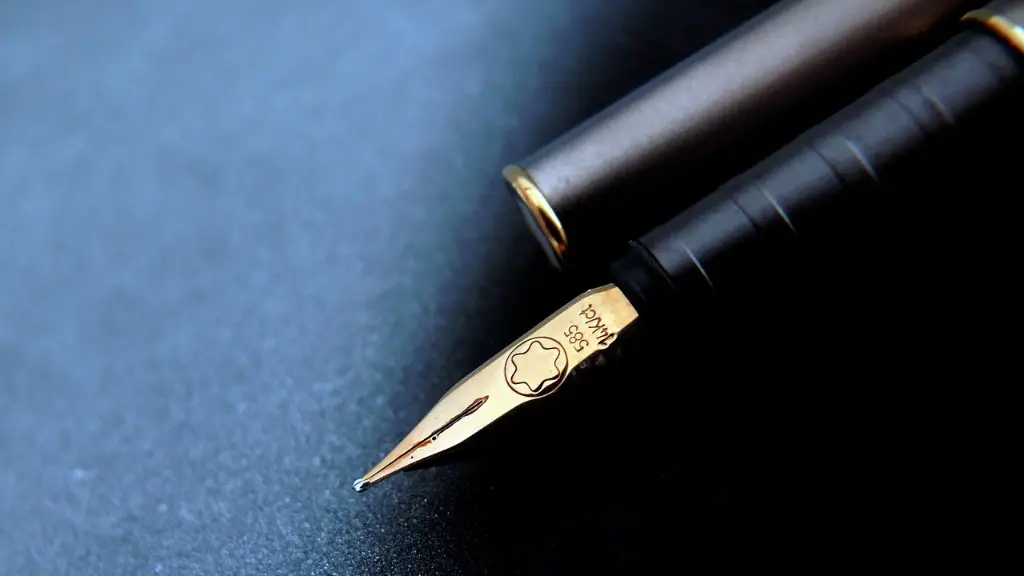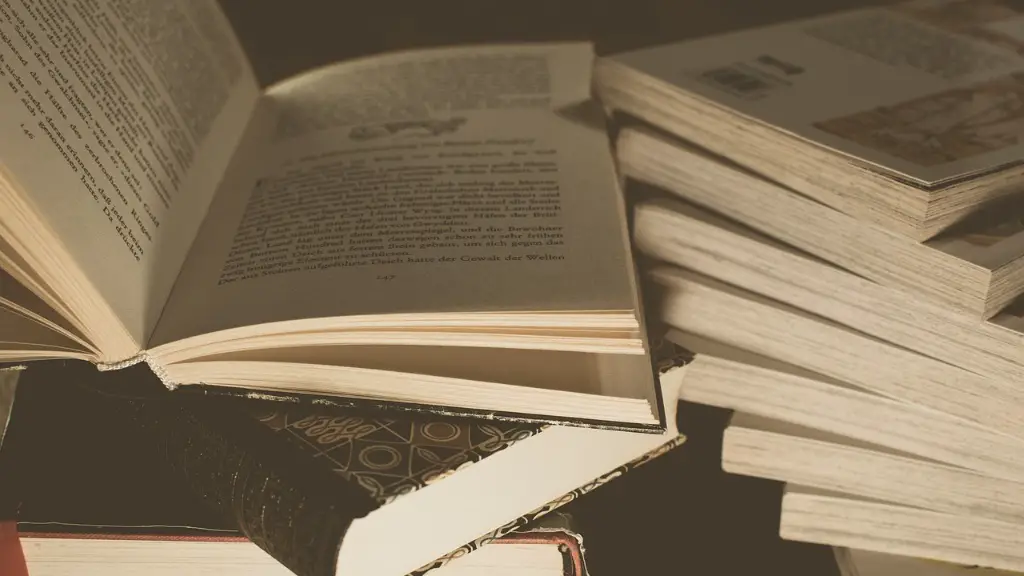What is Diction in Poetry?
Diction refers to the language and style a poet chooses to use when writing their poetry. By selecting and arranging words, a poet can convey ideas, feelings, or images in a powerful and creative way. Through diction, a poet is able to create vivid and emotionally charged language to bring out the rhythm and meaning of their work. While diction is important in all types of writing, it is especially important in poetry, because poetry relies so heavily on word choice and placement.
Many poets focus on the sound and meaning of individual words as well as the way these words affect the overall structure of their poem. This is called figurative language, which involves using words that evoke an image or emotion. Immediate examples of figurative language include metaphors, similes, and personification. Through the use of these language tools, poets can bring out intense feelings and emotions in their work and can make connections between seemingly disparate ideas.
When it comes to diction, some poets opt for a casual, conversational tone, while others opt for a more formal and precise dialect. The tone of a poem can be the difference between an understandable poem and an incomprehensible blur. For example, a poet might use measured language in a piece to demonstrate intellectual insight or an attentive eye for detail. Alternatively, a poet might choose a more casual Colloquial tone to draw out a passionate, provocative mood in their writing. Ultimately, the poet’s diction choices should reinforce the overall message of the poem.
In order to utilize diction effectively, poets must understand the power and limitations of the language they are using. For instance, the choice to use one word, such as “grief” instead of “sorrow,” could create an entirely different atmosphere within the poem. Consequently, poets must consider the implications of their word choice before using it in their work. After all, words have the power to change the entire course of a poem, which is why poets must give great care and attention when selecting the appropriate words.
Additionally, poets must be mindful of spelling and punctuation when using diction in their poems. Poor spelling and punctuation can ruin a poet’s chosen level of diction, thus diminishing the poem’s impact. As a result, poets must take care to ensure that their spelling and punctuation accurately portray the level of diction they are trying to achieve.
The Role of Stylistic Devices in Diction
Stylistic devices such as alliteration, hyperbole, and assonance are also essential in creating effective diction. Alliteration is the repetition of beginning consonant sounds, and it is used to bring out the musicality of a poem. Hyperbole is an extreme exaggeration used to emphasize a point, while assonance is the repetition of vowel sounds. Both are used to bring out the feeling and emotion in a work. By combining these stylistic devices with the appropriate words, a poet can create a sensory experience that poetic diction strives to achieve.
Speaking metaphorically, poets use words as paintbrushes to bring out the intended tone and communicate the desired message. As they form their poems, they must be mindful of their diction choices. Poorly chosen words can lead to a convoluted poem and can potentially alienate readers. As such, poets must be conscious of the diction they choose, for diction has the potential to make or break a poem.
Why Choose the Right Diction?
Using appropriate diction can help poets to express complex ideas in a straightforward and powerful manner. By making careful word choices, poets can use their poems to examine the world from a unique perspective. Additionally, appropriate diction reinforces the tone and rhythm of a poem, allowing readers to feel connected to the poet in surprising ways. And as poets continue to evolve their craft, they must never forget the importance of smart diction.
For poets, the challenge is not just to create a captivating poem, but also to assure their poetry rings true with intelligent and appropriate diction. With this in mind, poets can use their diction to create works of art that reflect their unique experiences and perspectives. After all, effective poetry is more than just words; it is an entire experience that captivates the senses and invites readers to explore their place in the world.
Using Metaphor and Similes in Poetry
Metaphors and similes are two powerful poetic devices which poets often use to bring out the meaning and emotion in their works. A metaphor is a direct comparison between two usually unlike things where the meaning of one is carried over to the other. Similes, on the other hand, are indirect comparisons between two things, where the similarity or point of comparison between them is made explicit. Both devices can help to bring vivid imagery and emotion to a poem, thus making the poem more impactful and memorable.
Metaphors and similes can also be used to explore complex ideas or concepts and to create connections between seemingly disparate ideas. For instance, a poet might use a metaphor to compare concepts such as art and the soul, drawing out insight and personal growth. Additionally, metaphors and similes can be used to give the poem a unique voice that can capture the reader’s attention and draw them into the poem.
When using metaphors and similes in poetry, it is important to remember the go the extra mile and to make sure the comparisons are original, natural, and meaningful. Additionally, it is important to avoid clichés and to make sure the words chosen fit the tone and message of the poem. If a metaphor or simile is out of place or is not meaningful, it can detract from the overall impression of the work, thus diminishing the effect of the poem.
The Role of Imagery and Symbolism in Poetry
Imagery and symbolism are important elements of poetic diction. Although diction is primarily focused on the choice of words, imagery and symbolism can help to bring these words to life. Imagery focuses on creating vivid mental images using language. As such, it allows readers to visualize the poem and can evoke certain feelings or emotions. Symbolism, meanwhile, uses symbolic imagery to demonstrate deeper meanings and themes within the poem.
Imagery and symbolism can be especially useful for poets who are trying to convey complex or abstract concepts. For instance, a poet might use imagery to draw out the sadness and loneliness of a particular subject matter or to demonstrate the beauty and joy of a certain moment in time. Similarly, a poet might use symbolism to explore deeper questions or to draw out the philosophical implications of a particular situation.
Regardless of its application, imagery and symbolism can be powerful tools for poets to communicate their message. The key is for poets to be mindful of their diction and to use the language of their poem to create vivid mental images. Additionally, poets must ensure that their symbols are meaningful and relevant to the poem’s overall theme.
Using Irony in Poetry
Irony is another effective device used in poetry. Generally, irony is the discrepancy between what is expected and what actually occurs. This discrepancy can be used to highlight certain themes or ideas within a poem. One example of irony is when a poet creates a contrast between the physical description of a subject and their internal feelings.
In poetry, irony can be used to demonstrate the complexity of human experience or to create an element of surprise. Additionally, ironic poetry can be used to evoke empathy in a reader, as the poem paradoxically reveals the truth behind a situation. Consequently, irony can be a powerful tool for poets to bring out the deeper nuances of their work.
Although irony can be an effective poetic tool, it can easily be misinterpreted by readers. To avoid this, poets must use irony sparingly and make sure the discrepancy between the two ideas is clear. Additionally, poets must aim to avoid cliché ironic statements and to instead create irony that adds to the overall message of the poem.




